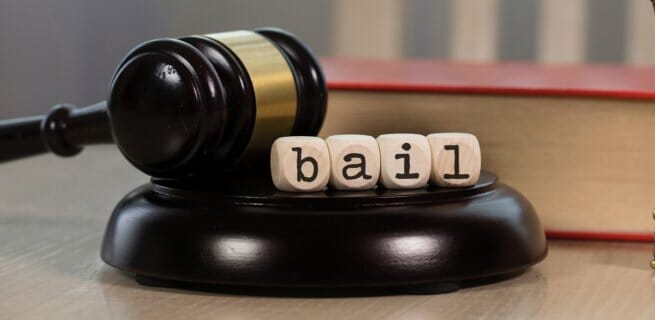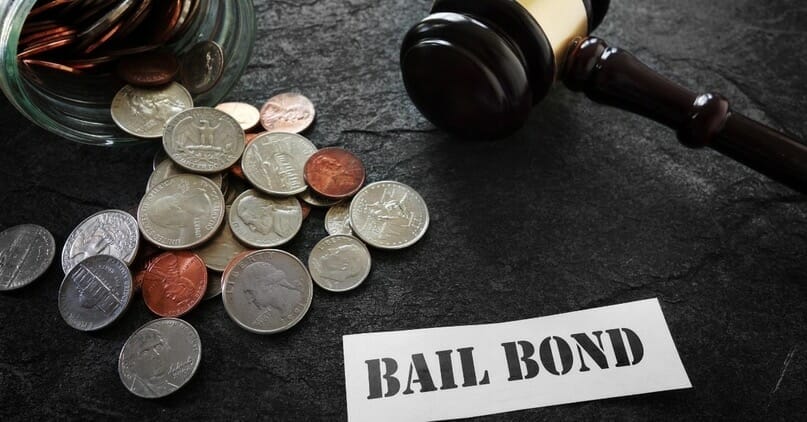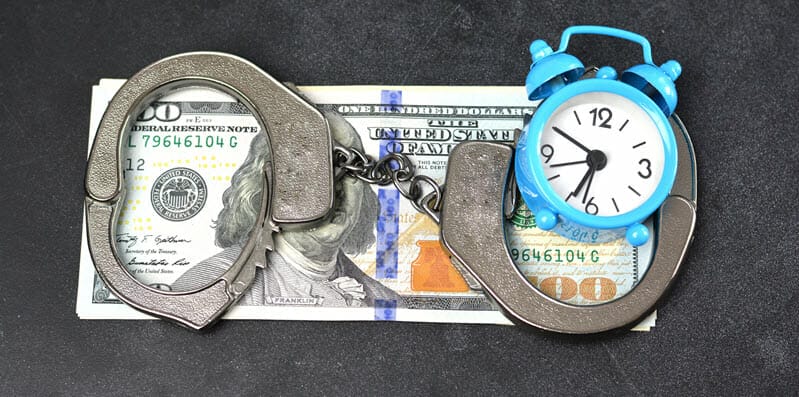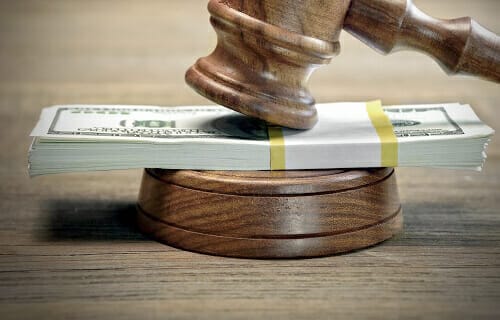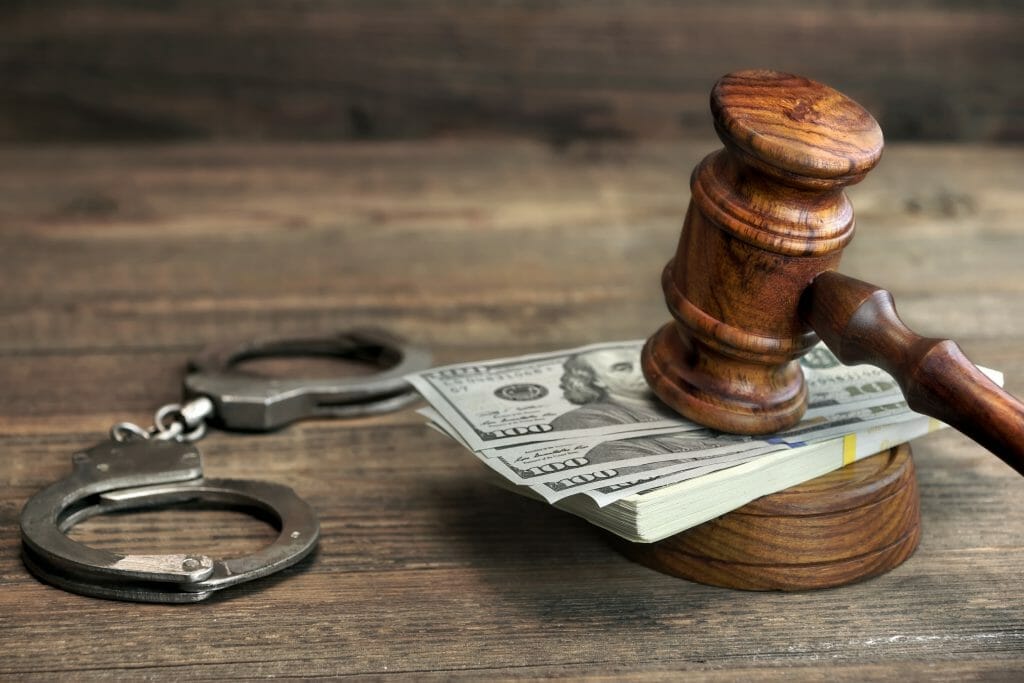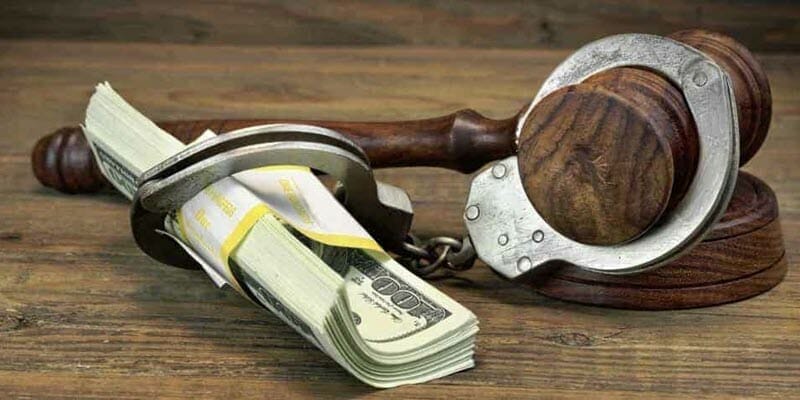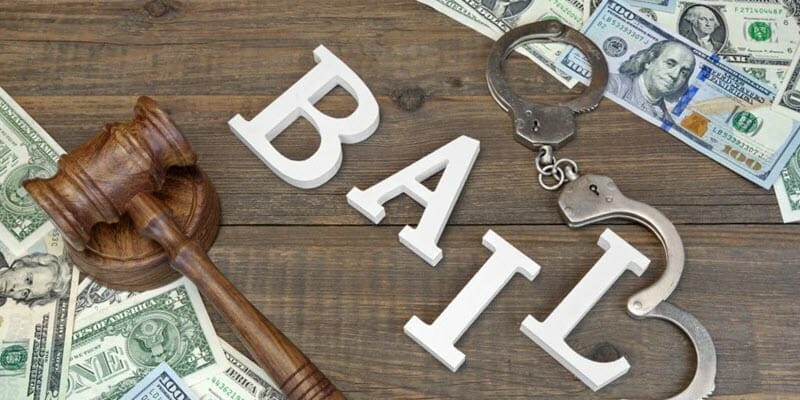
- Felonies
- *
- Misdemeanors
- *
- Drug/Narcotics Violations
- *
- Sex Offenses
- *
- Gun / Weapons Violations
- *
- Robbery
- *
- Burglary
- *
- Assault
- *
- Theft
- *
- White Collar Crimes
- *
- Domestic Assualt
- *
- Property Damage
- *
How Is the Bail Amount Determined
Once in police custody, individuals may have the right to get out of jail by posting bail. Because people want to know what to expect from the process, it is important to understand how bail amounts are determined.
One of the questions we often get is how is bail set. The answer to the question of how is bail set is bail is generally set based upon the crime and charges you are facing. In addition, there are other factors like prior criminal history, flight risk, ties to the community, and employment status. Bail amounts can range from a few hundred dollars to as high as several million dollars depending on the case.
Who Determines Bail Amounts or the Bail Schedule?
Some court systems operate on a bail schedule for certain types of common crimes. How is bail set? Posted bail schedules provide uniformity and allow defendants to get out of jail without waiting for a hearing before a judge. As a general rule, most minor crime and arrest charges are set at around $500.
Bail schedules are not available to everyone. Ultimately, the judge determines the amount of bail. Once bail is set, they can raise or lower the bail according to their own discretion.
What Factors Does the Judge Consider for Bail?
Many jails are implementing bail algorithms to determine the risks of releasing a defendant on bail. Authorities enter select information on the defendant and a score results.
Outside of mathematical algorithms, judges also consider the following factors when determining whether to set bail and the amount.
- The seriousness of the criminal charge
- The criminal history of the defendant
- The defendant's ties to the community (family, employment, etc.)
- The defendant's record on showing up for court and history of bail jumping
- The defendant's threat to the community
What Happens at the Bail Hearing?
A bail hearing takes place before a judge. The goal of setting bail is to ensure the defendant will appear in court for all required dates. If a defendant fails to appear in court, they could face severe crime or arrest charges. The following are possible rulings resulting from bail hearings.
Release on Own Recognizance
If the alleged offense charges are minor and the defendant is not considered a flight risk, judges may decide to release them on OR. With an own recognizance ruling, the defendant signs an agreement to show up for court. The defendant does not have to spend any money for this bail release.
Release on Personal Bond
A personal bond is one that also requires no money. The defendant signs a bond stating they will appear in court or face criminal and possible civil penalties.
Bail Set With Terms of Release
When a judge sets bail, they typically also set the terms of a conditional release for the arrested defendant. They may say the defendant must be monitored, go through drug counseling, or have a curfew.
Bail Denial
Judges also have the option to deny bail altogether. Judges may deny bail for the following reasons.
- Certain felony and domestic violence charges
- Repeat offenses
- Flight risk
- Non-U.S. citizen
- If the defendant is considered a threat to the public
Options for Paying Bail
Once you know the bail amount, through either a bail hearing or a bail schedule, you have options for payment, including the following.
Payment by Cash or Check
You have the option of paying a cash bail via cash or check. Some courts will not accept a personal check, so you might have to pay with a cashier's check.
Payment by Credit Card
Not all courts will accept credit card bail payments. You should inquire about the payment options with the court.
Put Up Property
You also have options for putting up property worth the full bail amount. If you show up for your first court appearance and all appearances afterward, this property will be returned to you.
What Happens if You Cannot Afford to Pay the Bail?
If you cannot afford to post bail, you have a few options. You can borrow money from a friend or family member. You can also stay in jail until your court date, which could take a couple of weeks or more.
Many people hire a bail bond company or bail bond seller to issue a bail bond on the defendant's behalf. Hiring bail bond companies requires paying a percentage of your bail as a bail bond fee.
We Are Here to Help Things Make Sense
As a bail bonds company, we understand the stress of being arrested and attempting to be released from jail. Navigating the legal system is challenging, especially when it is your first time.
If you need a bail bond or advice from a bail bond company, we are here to help. Contact us today with any questions you may have.


